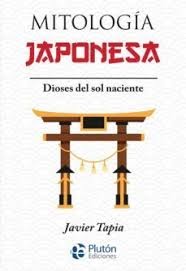
Review of the book “Ana no” by Agustín Gómez Arcos.
Today I want to talk to you about a novel that has moved me deeply: Ana no, by Agustín Gómez Arcos. This is a work originally published in French in 1977 and has been rescued by the publishing house Cabaret Voltaire in a magnificent translation by Adoración Elvira Rodríguez.
The story takes place in a small town in Andalusia, where Ana, a 17-year-old girl who works in an olive factory, lives. Ana is a rebel in her conservative and repressed community, and she is drawn to the culture and art of the nearby city. The novel follows Ana as she struggles to find her place in the world and escape the oppression that surrounds her.
The narrative moves between reality and surrealism, and the reader finds themselves in a world that sometimes seems like a dream and other times a nightmare. Gómez Arcos’s writing is incredibly vivid and descriptive, making each scene come alive in the reader’s mind.
Through Ana, the author explores topics such as sexual repression, political corruption, artistic censorship, and the fight for personal freedom. The work is a criticism of the Franco regime and its impact on Spanish society, but it is also a broader reflection on the fight for freedom and individual autonomy.
Ana is not the story of a woman who refuses to accept the reality that she has had to live. A reality marked by the Spanish civil war, Franco’s repression and rural misery. Ana Paucha, which is the name of the protagonist, is a seventy-five-year-old woman who lives alone in a town in Almería after losing her husband and two of her children in the war and seeing how the third is imprisoned by the her political ideas.
One day, he decides to undertake a journey on foot to the prison where his son is to hug him and give him the oil bread that he has made with his own hands. A journey full of obstacles, dangers and surprises that will make her discover a country unknown to her and face her own ghosts.
Ana is not an unforgettable character, a strong, brave and loving woman who rebels against destiny with her acid humor and unwavering faith. Her narrative voice captures us from the first pages with her simple but poetic language, loaded with popular expressions and dialectal turns.
The novel is also an implacable social criticism that denounces the injustices and atrocities committed during and after the Spanish civil war. A heartbreaking portrait of a dark time in our history that we must not forget.
Ana is not a novel that deserves to be read and disseminated for its literary quality and its testimonial value. A masterpiece by Agustín Gómez Arcos, an exiled and forgotten author in his own country who left us an essential work to understand our collective memory.
In conclusion, “Ana no” is a literary masterpiece that deserves to be read and analyzed for its exploration of universal themes and its poetic and exciting prose.
Source: https://algunoslibrosbuenos.com/ana-no


